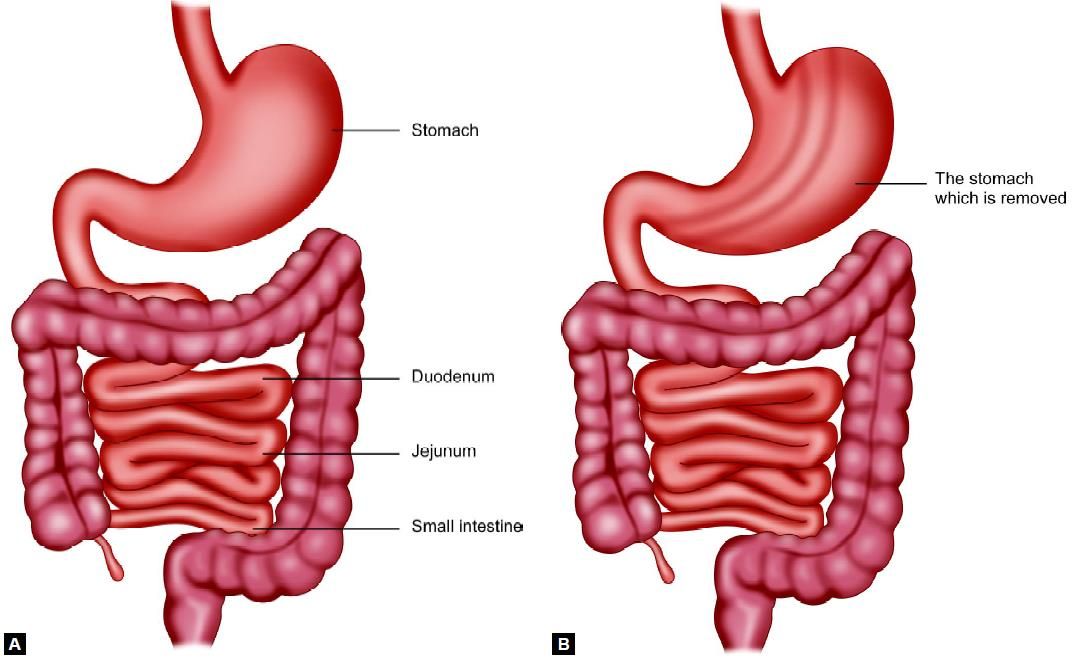Advantages and Disadvantage of Sleeve Gastrectomy
Some authors described LSG as a stand-alone procedure with good results with respect to excessive weight loss (EWL) and lower plasma ghrelin levels. Also, there are numerous reports of morbidly obese patients who underwent LSG as a first step before an intended malabsorptive procedure and lost their excess weight after LSG, so that further surgery was not necessary. This is important because the disadvantages of the malabsorptive procedure are avoided. Perhaps the greatest advantage of the gastric sleeve lies in the fact that it does not involve any bypass of the intestinal tract and patients do not, therefore, suffer the complications of intestinal bypass such as intestinal obstruction, anemia, osteoporosis, vitamin deficiency, and protein deficiency. It also makes it a suitable form of surgery for patients who are already suffering from anemia, Crohn's disease, and a variety of other conditions that would place them at high risk for surgery involving intestinal bypass. Sleeve gastrectomy can be performed laparoscopically without much problem in patients who are extremely overweight and this accounts for the rising popularity of the laparoscopic sleeve gastrectomy.
Disadvantages of Sleeve Gastrectomy
Perhaps the main disadvantage of this form of surgery is that it does not always produce the reduction in weight which people would wish for and, in the longer term, can result in weight regain. This is indeed true of any form of purely restrictive surgery but is perhaps especially true in the case of the sleeve gastrectomy. Because the procedure requires stapling of the stomach, patients do run the risk of leakage and of other complications directly related to stapling. In addition, as with any surgery, patients run the risk of additional complications such as postoperative bleeding, small bowel obstruction, pneumonia, and even death. The risk of encountering any of these complications is, however, extremely small and varies from about 0.5 and 1 percent. Having said this, the risk of death from this form of surgery at about 0.25 percent is extremely small.
The Risks and Complications of the Sleeve Gastrectomy
As with all forms of weight loss surgery, the vertical gastrectomy does carry risk and these will clearly vary from one patient to the other.

Before and after sleeve gastrectomy
Complications include:
• Gastric leakage and fistula 1.0 percent
• Deep vein thrombosis 0.5 percent
• Non-fatal pulmonary embolus 0.5 percent
• Postoperative bleeding 0.5 percent
• Splenectomy 0.5 percent
• Acute respiratory distress 0.25 percent
• Pneumonia 0.2 percent
• Death 0.25 percent.





